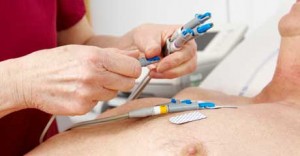A career in intensive care medicine will see you manage the care of critically ill patients, as well as patients requiring high dependency care. Patients will come from surgical, medical and trauma disciplines, so you will encounter a real mix of cases that you will need to adapt and respond to.
A typical day will start with a multidisciplinary round of all patients for the review and development of individual treatment plans, with more complex patient cases being seen as regularly as is required. Many consultants in this field work with another specialty interest such as anaesthesia or surgery, so this will further vary your workload. You can be based in one or more critical care units, high dependency units or with patients on the wards as part of an outreach programme.
Intensive care specialists give post operative treatment to critically ill patients from all specialties. They also treat pneumonia, severe asthma, liver and renal failure, heart failure and head injuries. Specialists would typically see approximately 12 to 25 patients a day.

Is this specialty for you?
You will need to perform numerous procedures for your patients. These will include:
- Mechanical ventilation
- Invasive monitoring, including arterial cannulation
- Central venous cannulation and pulmonary artery catheterisation
- Endotracheal intubation
- Percutaneous dilatational tracheostomy
- Weaning from mechanical ventilation
- Insertion of intercostal chest drains
- Massive transfusions
- Measurement of cardiac output
Personal characteristics you should have for a career in this area include:
- Team working and team leadership skills
- Communication skills
- Clinical skills in the recognition, diagnosis and management of critical illness
- Practical procedural skills
- Manual dexterity
- Ability to work under pressure
- Ability to work as part of a multidisciplinary team
- Awareness of cultural differences in the impact of serious illness and death
- Ability to communicate bad news
- Educational skills


